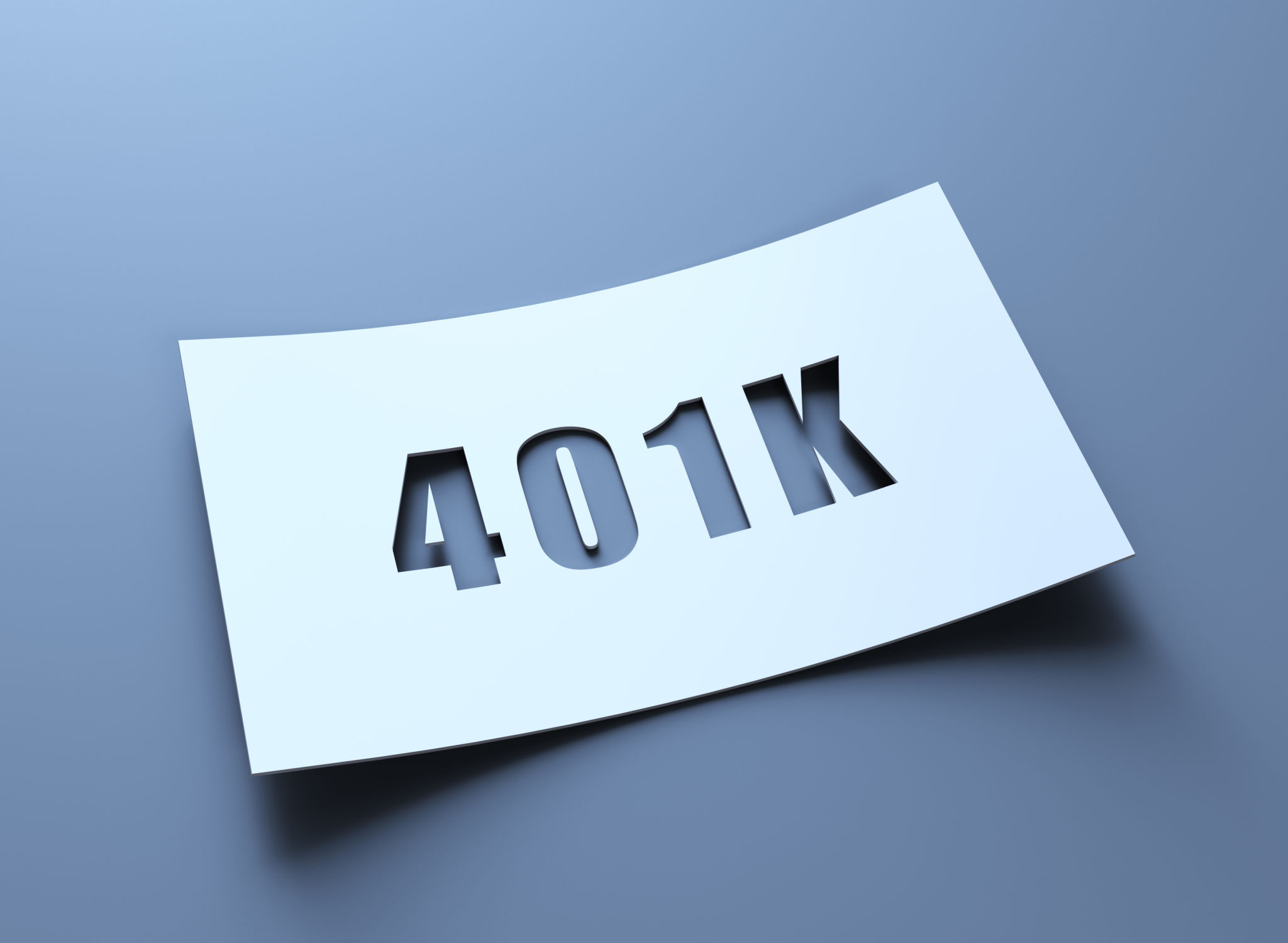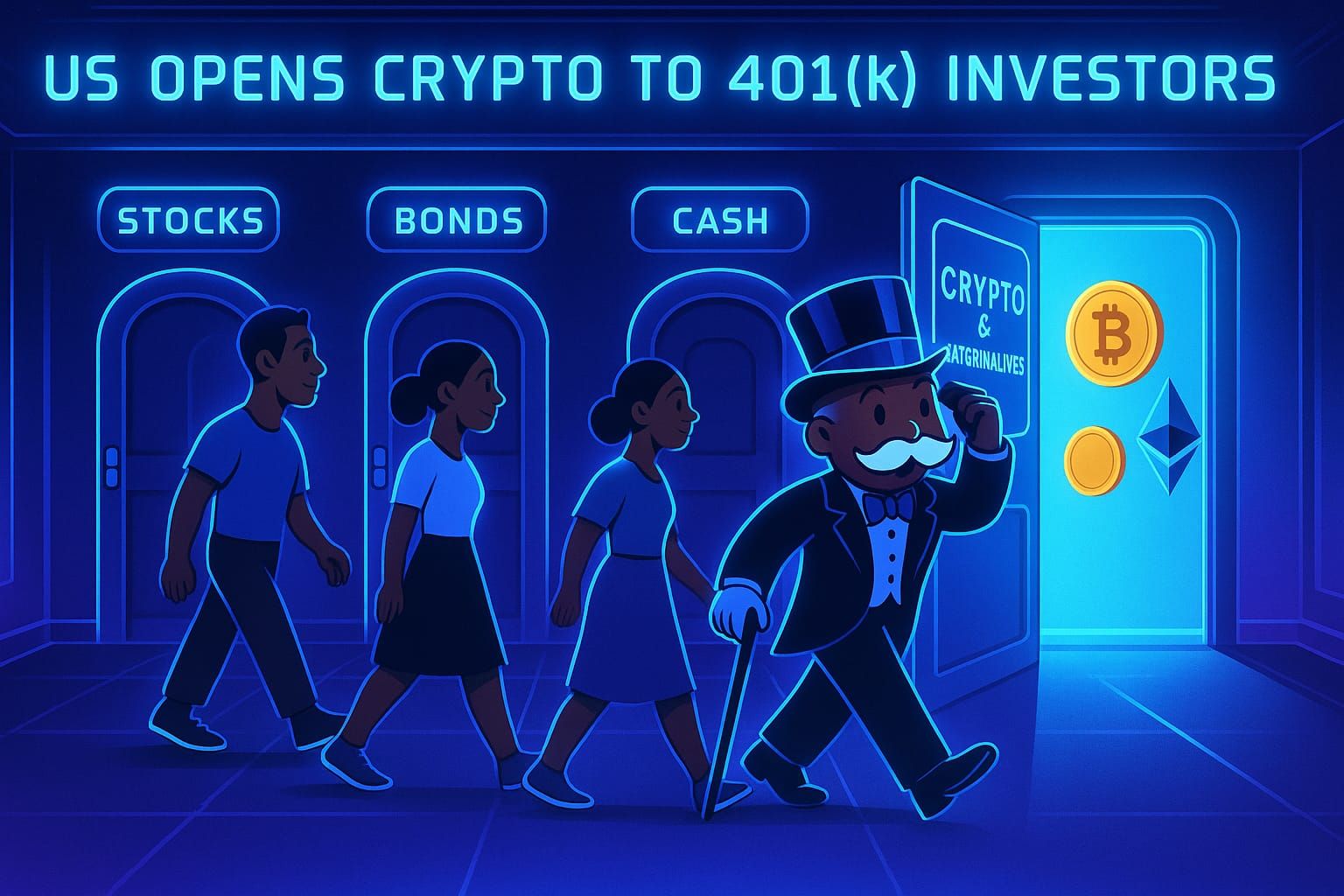Why the 401(k) Landscape Is Changing And What It Means for Your Future
Should the U.S. allow crypto in 401(k) plans?

During the pandemic, I finished paying my student loans. Today, aside from my mortgage, I am debt-free. That change leaves me wondering: Should my retirement account include cryptocurrency?
This is not just a policy debate; it's personal. Two very different financial philosophies shaped my journey, and now they collide in my mind over this issue.
The Man Who Helped Me: Dave Ramsey’s Debt-Free Blueprint
Back in those pandemic years, I felt buried. Student loan statements piled up. The weight of debt seemed like it would never lift. Building a future felt impossible when the past was still demanding payments.
That is when Dave Ramsey’s voice broke through the noise. His message was not complicated. Live on less than you make. Attack the smallest debt first. Build wealth slowly.

When I hear Ramsey’s likely opinion on crypto in 401(k)s, I can almost feel it in my bones. He would say retirement is not a casino. He would point out that Bitcoin lost over half its value in 2022. He would remind us of the FTX collapse that wiped out billions in wealth.
Your 401(k) is not play money. It is the difference between dignity and desperation at age seventy.
From this view, the conclusion is clear. High potential returns are possible, but so are catastrophic losses. Diversification sounds good, but regulatory uncertainty makes it a risky proposition. For Ramsey, the right path is slow, steady, and predictable.
That discipline is exactly what allowed me to become debt-free.
The Voices Pulling Me Forward: Exponential Thinking
But once the debt was gone, my mindset changed. I was no longer just surviving. I started thinking about growth, opportunity, and what might be coming next.
This is when I began to learn from Peter Diamandis, his co-host Alex Wissner-Gross, and Emad Mostaque, author of The Last Economy. Unlike many, they view crypto not as speculation but as participation in a system that is already being built.

Diamandis: Technology Moves Forward Without Permission
Diamandis studies exponential technologies that reshape society. The internet. Mobile phones. Artificial intelligence. Blockchain. His argument is straightforward. Digital currencies already exist. The question is not if they will matter but who will benefit from them.
When Fidelity added Bitcoin to 401(k) plans in 2022, it was not a careless decision. It was recognition that demand was real and that workers wanted exposure.
Wissner-Gross: Building Resilience
Wissner-Gross approaches the issue from a systems perspective. He asks what happens when inflation runs high or when faith in centralized banks weakens. From his view, crypto is not only about chasing returns. It is about resilience. It offers a hedge against weaknesses in the current financial structure.
Every retirement plan already assumes that the dollar will retain its value and that stock markets will continue to rise. Crypto challenges those assumptions and prepares for scenarios where they may not hold.
Emad Mostaque: Two Economies at Once
Emad frames it differently. He says we are not debating whether to let crypto into the old economy. We are already watching two economies operate in parallel.
The last economy was centralized, government-controlled, and dominated by banks. The next economy is decentralized, blockchain-verified, and digital native.
If workers are not allowed to include cryptocurrency in their retirement accounts, the effect is straightforward. Wealthy investors and institutions will gain the upside while ordinary people are locked into the past system.
Standing Between Two Worlds
Here is my reality. Ramsey gave me the tools to get out of debt, and I am grateful for that. But thinkers like Diamandis, Wissner-Gross, and Emad remind me that refusing to adapt carries its own risks.
The best answer may lie in the middle. Imagine a cap on crypto allocation within a 401(k), perhaps five percent of the portfolio. This would allow for participation in growth while limiting the downside in the event of a digital asset collapse. Pair that with required investor education and an opt-in approach where traditional funds remain the default.
This path honors Ramsey’s wisdom about protecting core retirement funds while acknowledging the exponential shifts shaping the future.

My Answer
Should the U.S. allow cryptocurrency in 401(k) plans? My answer is yes, but with guardrails in place. Not because crypto is guaranteed safe, but because excluding it may be more dangerous in the long run. If digital assets become central to the global economy, we will regret leaving workers behind.
Ramsey taught me to respect risk. Diamandis, Wissner-Gross, and Emad taught me to respect change. Both truths matter.
The future rarely waits for us to feel ready. Let me know where you stand.